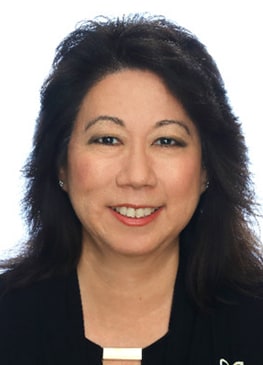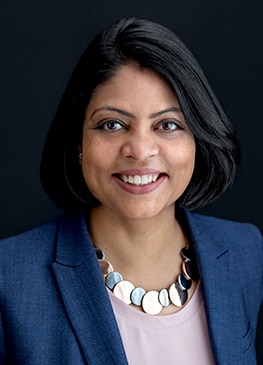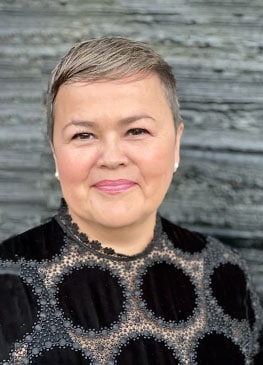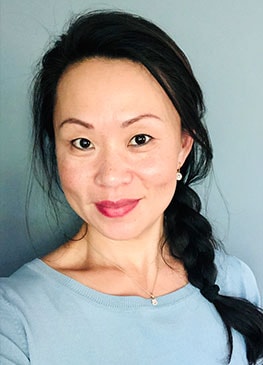Read the full interview here
-

Q. What were some early influences that really shaped who you are today as a leader?
A. I grew up on a small farm in southern Minnesota, and my parents were very influential in who I am today. They were supportive of all my ideas and interests. And my father didn’t give certain chores to the girls and certain chores to the boys. It was all equal. I drove the tractor, changed the oil, and baled hay. Having somebody who was so influential in my life not see the difference between responsibilities by gender was really important, and that’s something that I’ve carried with me.
-

Q. What were some of the values that your parents passed along?
A. Both of them were very curious people and asked us lots of questions to help us to think beyond the farm that we were on. My dad was one of the early adopters of computers, and really saw that as something that was going to be the wave of the future. He wanted his children to have opportunities to participate in that wave.
At one point, he even had computerized tags that the cows would wear. On a farm, you’re always looking for efficiencies. It’s one of the reasons why I appreciate agile software development so much. That continuous improvement mentality has carried with me throughout my life.
-

Q. How, as a leader, do you handle all the disruption and uncertainty in business these days?
A. Mother Nature throws us lots of curveballs, especially growing up on the farm. You didn’t know when the next snowstorm was going to come. You didn’t know when the electricity was going to go out. You always had to have a backup plan, and you always needed to persevere to make sure that you did whatever you needed to do, because that was our livelihood. We also had to care for the lives of our animals, and the land and the crops.
-

Q. What are some key lessons you’ve learned during your career?
A. Speaking up is a big one. Make sure that your ideas are heard, and that you’re not holding back. I’ve felt supported in my career both by male and female leaders. But I had an interesting experience a few years ago. I brought my daughter to Bring Your Child to Work Day, and I was in a meeting, and everyone graciously asked her questions and engaged with her.
Then we had our meeting, and after it was over, my daughter was disappointed. She said, “Mom, you brought up some really good things, and nobody said anything. And then a few minutes later, one of the men in the room said basically the same thing, and everybody agreed with him. That’s not how it should be.”
I was so surprised. It hadn’t even occurred to me that that had happened. So I’ve trained myself to ask, how can I prevent this from happening again in the future? I’ve been watchful, and when those situations occur now, I’m able to speak up.
I put it into context without really pointing somebody out. I can say something like, “John, thank you for reiterating my previous points and bringing this back into the conversation, and I’d like to add…” Seeing those moments through my daughter’s eyes motivates me to do that. I want to help pave the way to make things easier and better and more inclusive for everybody.
-

Q. Other insights that you share when you’re mentoring other women?
A. If you want feedback on how to improve, it’s easy to go to somebody you work well with, and you’ve had great experiences together. Those types of conversations are easy and natural to have. But the conversations that are going to be more meaningful are ones with people you’ve had some conflict with.
So reach out to those people to say, “When we worked together on this project, things didn’t go as smoothly as they could have. What could we have done together in our relationship and in our working styles that could have made this go better?” And learning from those things that didn’t go well is going to be infinitely more helpful than just always looking to the people who agree with you and work similarly and well with you.
-

Q. What is your advice to the workhorses of the world to make sure they are getting credit for all their contributions?
A. When my team meets, I like to ask them for their success stories, and we try to have follow the arc of Pixar storytelling. There was a situation where bad things were happening, then you came in and fixed it so that there was a happy-ever-after ending. Not every story follows that kind of narrative, but it’s good to have people share their accomplishments. It reminds everyone that our work is bigger than just us. As a leader, it’s my responsibility to help others see the broader impact of their work.







